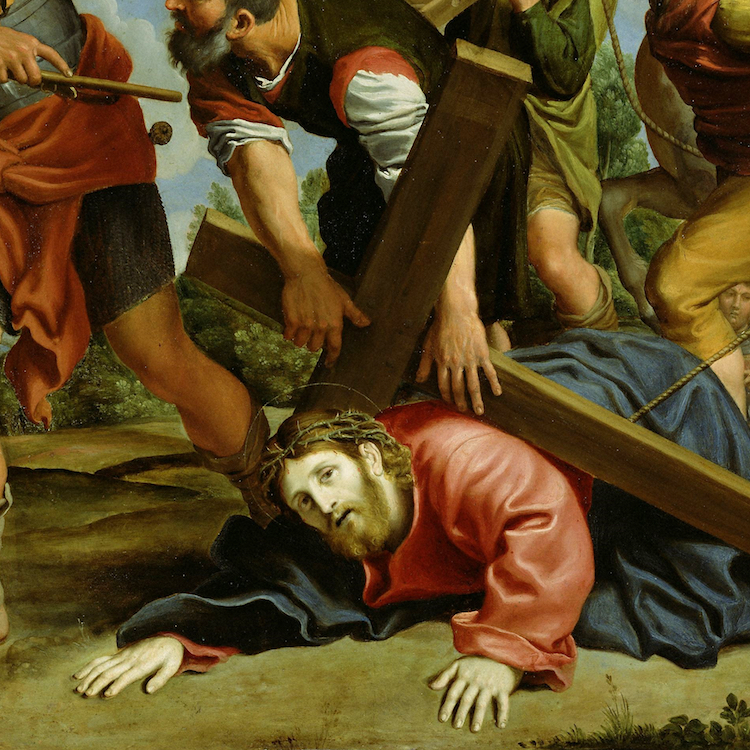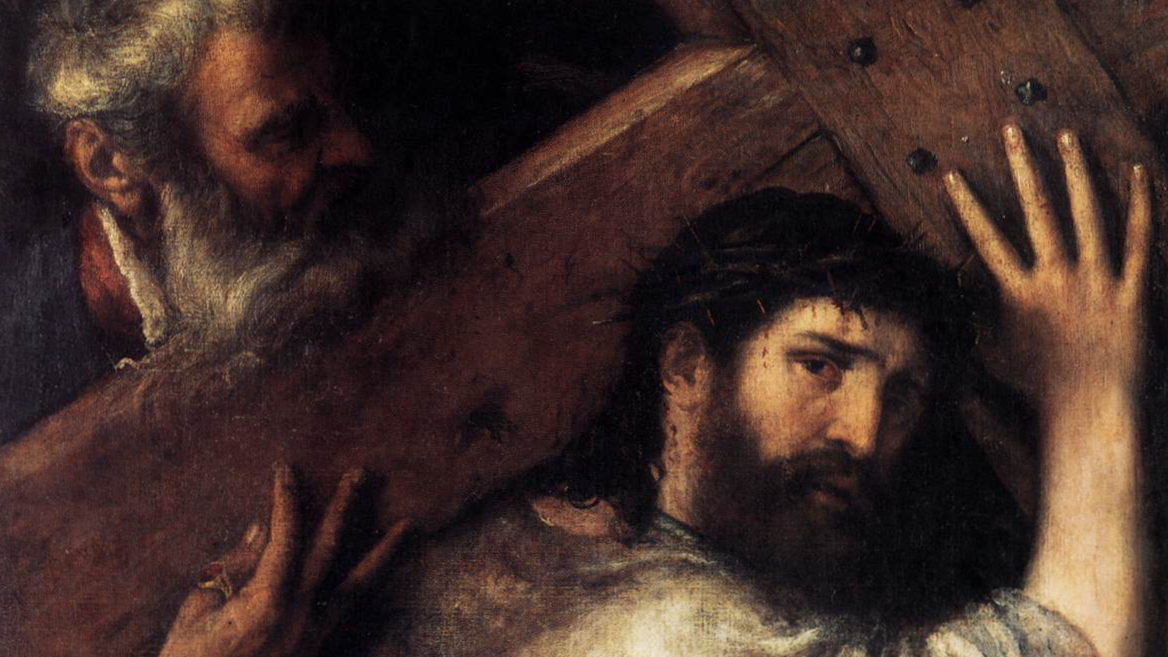We all know that the colors of our liturgies have profound significance. After about six weeks of purple vestments, we would expect green vestments because palms are green. But on Palm Sunday the vestments are red. They are red like the blood that Jesus shed on the cross!
It is the cross that reveals the true face of our God. The triumphant entrance into Jerusalem with so many enthusiastic people waving palm branches did not last but a few hours. In the passion narrative that we read on Palm Sunday, in Jesus we see a God at the mercy of, likely, some of the same people who had proclaimed him the new King of Israel; we see a defenseless, weak king, handed over to evildoers, tossed this way and that way, made sports of, jeered, reviled, cruelly tortured.
We should be shocked that Jesus lets people do anything they want to him.
In the Jesus of Holy Week we see a God who is vulnerable, humble and humiliated. The power so visible in his miracles, now, is willingly absent; his awesome majesty deliberately restrained. On Palm Sunday and on Holy Week, we have before us a God that anyone can strike with impunity.
From today until Good Friday, the cross indicates unequivocally how much its message has shaped our life or has remained a simple ornament around our neck. Claiming to be followers of Christ without carrying the cross assigned to us, is a stroll in the park.
Living out the Gospel without self-sacrifice is a pious illusion. Going scrupulously through all the motions that our Catholic religion prescribes without continuous, sincere attempts at enacting the New Commandment of loving each other as Jesus loved us on the cross, is good acting. The inescapable fact is that we, as believers, are recognized as such to the extent that we follow him carrying our own cross.
Given the loveless condition of this world, the cross is the tool proposed by Christ to renew the world with love. However, the very first time we felt the weight of our cross, we already associated it with suffering, and loneliness, incomprehension, refusals, betrayals, humiliation, ingratitude. Even after so many homilies about the redeeming value of suffering endured in union with Christ, we cannot overcome the instinctive repulsion that ensues.
Today, we wonder when we will be able to convince ourselves, at gut level, that the cross is meant to speak to us of our life freely given, offered up, spent for others. Today, as a distant, remote thought, we should also wonder when will the day come in which we shall carry our cross with full trust in Jesus who is leading the way. And when will the day come in which we shall carry it with an attitude of joyous self-giving?
My dear friends in Christ, it is in the complete acceptance of our cross that we actively reverse the self-centeredness with which we are born. There is no other way. For this reason we cannot expect to achieve a lasting spiritual improvement without the cross. We should not think, not even for a moment, that since Christ is now risen, we can skip Calvary and go straight to Easter. Nor should we offer others the illusion that any of the problems and tragedies and wounds afflicting our world can be solved or transformed or healed without the cross.
It is perfectly clear that the world and Christ speak totally different languages. Without the cross, Jesus’ and ours, the language that everyone needs to speak, the language of love will become incomprehensible as well. The cross makes all the difference in the world and the language of self-giving, the language of love, is the only one that we shall speak.








